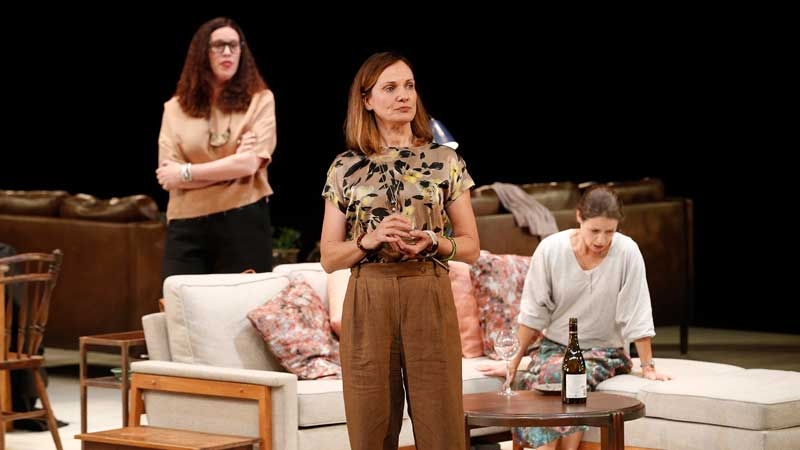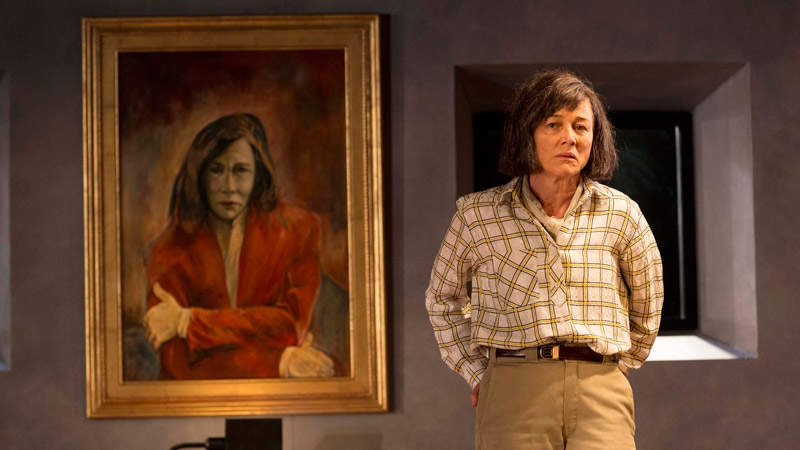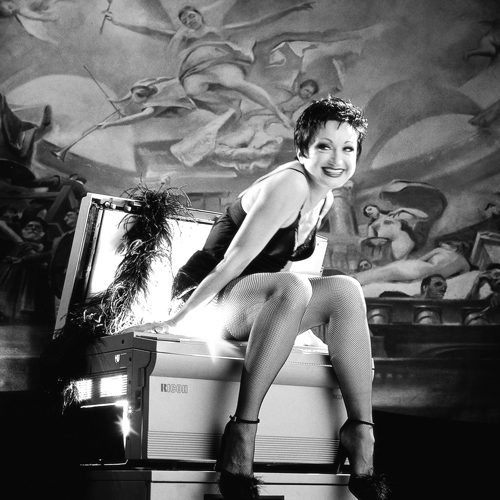Joanna Murray-Smith is one of Australia’s most celebrated playwrights. In a recent interview with MTC Joanna said, ‘We all want to lead more than one life. We all want to live inside passion.’ For Joanna, that passion exists inside her head.
If you weren’t a playwright, what other life would you be leading? What does ‘living inside of passion’ look like for you?
The world inside my head is my passion. I’m lucky that my fantasies or daydreams can be extrapolated into a working life. The magic of seeing a flicker of a thought emerge into a fully fledged play, collaborated on with wonderful artists and watched by paying grown-ups is fantastic. I’m excited all the time by life, by the people I meet, the conversations I have and the things that I read or watch or accidentally fall into. The other life I’d be leading? A life where I could read instead of write. Well, probably Tilda Swinton’s life in I Am Love. Basically in Italy, married to a rich Italian industrialist and having an affair with my husband.
Can you describe what it’s like when you first conceive an idea for a new play? Do you race to your keyboard at any hour of the night to get the idea out, or does it slowly brew in your mind before becoming a first draft?
I usually do recognise the moment a new play is born. It’s a thought or something I see or read or hear and there’s a kind of internal flash. Then my mind zings around at a million miles an hour trying to work out if it has traction. Can I ‘see’ it? If the idea doesn’t let me go then I know I’m onto something.
What is the most gratifying aspect of writing for the stage?
Working with brilliant people in what is generally a very convivial, kind and energetic workplace. Feeling connected to the people who experience the work is also lovely and something novelists don’t get. Sitting in an engaged audience and watching them react to my imagination is always mysterious, terrifying and wonderful all at once.

Katherine Tonkin, Catherine McClements and Kate Atkinson in Three Little Words(2017).
Where did the blueprint for Three Little Words come from?
I would absolutely love to buy an online blueprint for my plays but alas, none available! The structure and tone of a play – and often the ideas and characters – evolve over many drafts. A play can begin as a drama and end up a comedy and vice versa. With this play, I began with the first scene. At a funny, intimate, relaxed dinner between best friend couples, a metaphorical grenade is thrown into a friendship and a marriage. Can I write a play about love and friendship which is very contemporary but also timeless, which is funny but savage, which is fast and furious but also very meditative about marriage? These were the questions I was wrestling with. And on a less rarefied note, I wondered why I felt so upset at other people’s break-ups, even people I barely knew. Was it that my own idealised view of love trembled at other people’s unhappiness? Was I jealous of change or emotional adventuring? Was I complacent and could catastrophe be unleashed at any moment, even after twenty years of marriage?
Do you become attached to your characters? Do you ever think your characters represent elements of yourself?
Yes and yes. I lived with my version of Patricia Highsmith in Switzerland for a long time and I grew to love her, even though she wasn’t very loveable.

Sarah Peirse as Patricia Highsmith in Switzerland (2016).
Being a successful playwright depends a lot on other people getting it ‘right’. What makes you trust a piece of work with a cast and creative team?
Optimism! Most of a collaboration is spent wondering at other people’s fascinating take on the world, their creative instincts, their intelligence, grace and determination. It’s an honour to work with them.
Your 2001 play Bombshells was written for Caroline O’Connor and was a huge success. Do you often write with actors in mind? Have you done this with Three Little Words?
I loved Caroline in Bombshells and adored writing for such an immensely talented actress. It’s always fun writing to specific actor’s skills, and sometimes stretching those skills in new directions for them. But I didn’t have anyone in mind for the early drafts. Once the play was cast, I could tweak and re-energise the play with what I knew and admired in each of the actors. You portrayed a marriage break-down in one of your earliest plays, Honour (1995).

Caroline O’Connor in Bombshells (2001).
What has brought you to revisit this subject 22 years later in Three Little Words?
I was married when I wrote that play and I’m still married to the same person. That’s a lot of material right on my doorstep.
Joanna Murray-Smith’s Three Little Words, plays at Southbank Theatre from 18 April.
Published on 15 April 2017
